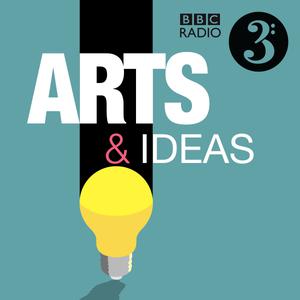
Arts & Ideas
BBC Radio 4
Leading thinkers discuss the ideas shaping our lives – looking back at the news and making links between past and present. Broadcast as Free Thinking, Fridays at 9pm on BBC Radio 4. Presented by Matthew Sweet, Shahidha Bari and Anne McElvoy.
- 57 minutes 4 secondsKant today, Spice Girls Reunited, Impersonating an Animal
Marshmallows and Kant, ideas about girl power from Mary Wollstonecraft (born April 27th 1759) to the Spice girls; and galloping horses, sea-gull sounds and life as a goat. On today's Free Thinking Shahidha Bari is joined by literary historian Alexandra Reza, philosophers Angela Breitenbach, John Callanan and journalist Tim Stanley to look back at the week and discuss ideas about our relationship with birds and beasts; and how the philosophy of Immanuel Kant (born 22nd April 1724) outlined ideas about peace, reason and finding ways to have rational discussion. Plus we hear from Thomas Thwaites, author of Goatman: How I Took a Holiday from Being Human.
Tim Stanley is a journalist. You can hear him discussing rationality and tradition with Steven Pinker, the argument against democracy, and the ideas of John Henry Newman on Free Thinking episodes available on the programme website and BBC Sounds Alexandra Reza teaches comparative literature at the University of Bristol. You can hear her in Free Thinking episodes discussing the ideas of Aimee Cesaire, Frantz Fanon and the film-making of Susan Maldoror Dr John Callanan teaches philosophy at Kings College London Angela Breitenbach is Professor of Philosophy at the University of Cambridge
Producer: Luke Mulhall
26 April 2024, 9:17 pm - 43 minutes 32 secondsNew Thinking: Exploring the local
Women made up 10-15% of the workforce in the early days of the post office. Looking at a series of different records from the 17th century onwards, Sarah Ward Clavier has discovered stories about spying, how pubs, the links between pubs and post offices.
Research suggests that communities with a local newspaper are more likely to vote in local elections. Rachel Matthews, who worked as a journalist in local news before turning to academia, explores the relationship between newspapers, readers, and advertisers across time and asks how the role of the local press is changing in the digital age.
Anna Muggeridge has been looking into the hidden history of women politicians in local politics, in the first half of the twentieth century. This was an age when many important decisions on education and welfare were made at a local level – and where the story of women in local politics became intertwined with arguments around female suffrage.
Producer in Cardiff: Fay Lomas
Presenter Dr Joan Passey teaches English at Bristol University and is a New Generation Thinker working with the BBC and the Arts and Humanities Research Council to share research on radio.
Dr Sarah Ward Clavier, from the University of the West of England, researches the expansion and travails of the early Post Office, early modern news and communications, and Wales in the seventeenth century. Her most recent book is Royalism, Religion and Revolution: Wales, 1640-1688.
Dr Rachel Matthews, from Coventry University, researches the impact of local journalism on the people and places to which it relates, both across history and in a contemporary context. She is the author of The History of the Provincial Press in England.
Dr Anna Muggeridge is Lecturer in History at the University of Worcester and is currently researching a history of women in local government in interwar England and Wales. She also researches women’s political activism in the 20th century.
This New Thinking episode of the Arts and Ideas podcast was made in partnership with the AHRC, part of UKRI. You can find more conversations about new research available on the website of Radio 4’s Free Thinking programme and on BBC Sounds
26 April 2024, 3:33 pm - 57 minutes 2 secondsTacitus, Byron's fanmail and Bluey
Classicist Mary Beard picks Tacitus as a figure who still has relevance if we're thinking about satire, power and celebrity. Shahidha Bari is joined by Mary, historian Helen Carr, who co-edited What is History Now? political sketch-writer from The Times newspaper Tom Peck and Konnie Huq, writer and former presenter of the children's TV show Blue Peter. On April 21st 1964, the tv channel BBC 2 launched with an episode for children of Play School and programmes like Bluey and Peppa Pig, have been making headlines so what do we want from kids TV? Plus - poet Lord Byron died 200 years ago this week - scholar Dr Corin Throsby has been reading the fan mail he received.
Listen out for Mary Beard and the new series of Being Roman coming to BBC Radio 4 in May - and the first series is available on BBC Sounds. And if you're a fan of Oliver Postgate - The Clangers, Bagpuss and Noggin you can find a Free Thinking episode exploring those programmes.
Producer: Lisa Jenkinson Studio Manager: Tim Heffer
19 April 2024, 9:22 pm - 56 minutes 49 secondsChange, scrabble and cultural christianity
"The times they are a changin" or are they? In politics people are talking about an appetite for change, or being a candidate for change but how radical can you be? With climate change, seasonal change and a change of broadcast time for this programme, Matthew Sweet and his guests discuss change, play a new collaborative version of scrabble, and after Richard Dawkins gave an interview talking about "cultural Christianity" - what do we understand by that phrase?
Kate Maltby is a critic, columnist and cultural historian who holds a PhD in Elizabethan literature Sophie Grace Chappell is a Professor of Philosophy at the Open University, whose books include Epiphanies: An Ethics of Experience and Trans Figured Takeshi Morisato teaches philosophy at the University of Edinburgh Dorian Lynskey is a journalist, author and one of the hosts of the politics podcast Oh God, What Now? His books include The Ministry of Truth: A Biography of George Orwell's 1984 and Everything Must Go: The Stories We Tell About the End of the World
Gemma Tidman is a Leverhulme Early Career Fellow at Queen Mary University London researching A History of French Literary Play, 1635–1789. You can hear more from her in a Free Thinking episode called Game Playing
Producer: Luke Mulhall
12 April 2024, 9:26 pm - 56 minutes 36 secondsHobbes, Abba, Waterloo and margarine
What do you owe the state and what does it provide for us? Writing during the English civil war, Thomas Hobbes came up with an outline for the social contract between individuals and the sovereign – on Free Thinking, Matthew Sweet and guests unpick his ideas and come up with a version for now. They also explore the politics of butter, margarine and scones and seek guidance about history from Abba lyrics.
Barry Smith is Director of the Institute of Philosophy at the University of London’s School of Advanced Study and founding director of the Centre for the Study of the Senses. For BBC Radio 4 he presented a 10 part series called The Uncommon Senses. You can find him on previous Free Thinking conversations about Pleasure, and Futurism. Joanne Paul is the author of The House of Dudley: A New History of Tudor England. She's Honorary Senior Lecturer in Intellectual History at the University of Sussex and was a BBC/AHRC New Generation Thinker and presented her research in a Radio 3 Essay exploring Speaking truth to power James Kirkup is a Senior Fellow at the Social Market Foundation think tank and he writes for publications including The Times Sophie Scott-Brown is Lecturer in Philosophy at the University of East Anglia, where she teaches intellectual history. She is the author of The Histories of Raphael Samuel - A Portrait of A People’s Historian. You can find her in the Free Thinking programme archive discussing anarchism and David Graeber, and Happiness
Dr Stu Eve is Archaeological Director of the Waterloo Uncovered project.
Previous episodes of Free Thinking are available on the programme website and BBC Sounds and as the BBC Arts & Ideas podcast.
Producer: Robyn Read
5 April 2024, 9:40 pm - 14 minutes 53 secondsUnravelling plainness
Gold sequins, silk and vibrant colour threads might not be what you expect to find in a sampler stitched by a Quaker girl in the seventeenth century. New Generation Thinker Isabella Rosner has studied examples of embroidered nutmegs and decorated shell shadow boxes found in London and Philadelphia which present a more complicated picture of Quaker attitudes and the decorated objects they created as part of a girl's education.
Dr Isabella Rosner is a textile historian and curator at the Royal School of Needlework on the New Generation Thinker scheme run by the BBC and the Arts and Humanities Research Council to highlight new research. You can hear more from her in Free Thinking episodes called Stitching stories and A lively Tudor world
Producer: Ruth Watts
29 March 2024, 10:00 pm - 44 minutes 36 secondsPranks
In 1910 Virginia Woolf and a group of friends caused a stir when they were welcomed on board the HMS Dreadnought, disguised as a delegation of Abyssinian royalty. At the 2017 Conservative Party conference, Theresa May was handed a P45 in the middle of giving her speech. Both these events made the headlines, but what was the intention behind them and did they have any impact beyond provoking either amusement or outrage? Matthew Sweet is joined by Danell Jones who has looked in detail at the Dreadnought Hoax, Simon Brodkin who has staged various high profile stunts including delivering Theresa May's P45 and Kerry Shale whose father was an inveterate prankster who sold practical jokes for a living.
Producer: Torquil MacLeod
The Girl Prince: Virginia Woolf, Race and the Dreadnought Hoax by Danell Jones is out now. Simon Brodkin's 'Screwed Up' tour continues throughout the UK from May onwards.
29 March 2024, 10:15 am - 14 minutes 53 secondsWhat does feminist art mean?
Who's Holding the Baby? was the title of an exhibition organised to highlight a lack of childcare provision in East London in the 1970s. Was this feminist art? Bobby Baker, Sonia Boyce, Rita Keegan and members of the photography collective Hackney Flashers are some of the artists who've been taking part in an oral history project with New Generation Thinker Ana Baeza Ruiz. Her essay presents some of their reflections on what it means to make art and call yourself a feminist.
Dr Ana Baeza Ruiz is the Research Associate for the project Feminist Art Making Histories (FAMH) at Loughborough University and a New Generation Thinker on the scheme run by the BBC and the AHRC to showcase new research into the humanities. You can hear her in Free Thinking episodes on Portraits and Women, art and activism available as an Arts & Ideas podcast
Producer: Ruth Watts
28 March 2024, 10:00 pm - 39 minutes 57 secondsNew Thinking: Light and Darkness
The impact of light bulbs on cities like New York and Paris at the turn of the twentieth century and the way modernist poets like Mina Loy and Lola Ridge depicted this, is at the heart of research being done by Dr Nicoletta Asciuto. For this New Thinking conversation hosted by Dr Sophie Coulombeau, she joins Dr Jaqueline Yallop, whose book Into the Dark looks at living in dark places and at experiences including "sundowning" - experienced by some people diagnosed with dementia, this is a change in behaviour that occurs in the evening, around dusk as darkness grows, causing agitation and anxiety. When Jacqueline Yallop’s father was diagnosed with dementia, he began experiencing exactly that, which prompted Jacqueline’s profound self-reflection on the world’s relationship to the dark.
Dr Jacqueline Yallop is an award-winning author of fiction and creative non-fiction, and her book Into the Dark explores darkness in science, literature, art, philosophy and history. She teaches creative writing at Aberystwyth University. Dr Nicoletta Asciuto is a Senior Lecturer in Modern Literature at the University of York. She is currently working on her first monograph, Brilliant Modernism: Cultures of Light and Modernist Poetry, 1909-1930 which discusses the impact of new lighting technologies on the birth of new avant-garde and modernist poetics. Dr Sophie Coulombeau is an author and academic based at the University of York, and was chosen as a 2014 New Generation Thinker on the scheme run by the BBC and AHRC to put research on the radio.
This New Thinking episode of the Arts and Ideas podcast was made in partnership with the Arts and Humanities Research Council, part of UKRI. You can find more on BBC Sounds and in a collection on BBC Radio 3’s Free Thinking programme website under the title New Research including conversations about music and disability, language learning, sign language, green thinking and neglected women artists.
Producer in Salford: Lola Grieve
28 March 2024, 8:34 pm - 44 minutes 42 secondsApproaches to death
Viking burials, preserving archaeology in Uganda, the morgues of Paris and New York and the medieval attitude to dying are our topics as Chris Harding hears about new research from archaeologists Marianne Hem Eriksen and Pauline Harding, and historians Cat Byers and Harriet Soper.
Catriona Byers is completing a PhD at King’s College London on the nineteenth-century morgues of Paris and New York Dr Marianne Hem Eriksen is Associate Professor of Archaeology at the University of Leicester and a BBC/AHRC New Generation Thinker. You can find an Essay she has written for BBC Radio 3 drawing on her research available now on BBC Sounds Dr Harriet Soper is Lecturer in Medieval Literature at the University of Bristol Pauline Harding is working on a PhD at UCL’s Institute of Archaeology, about spirits and approaches to cultural heritage in Uganda
Producer: Robyn Read
27 March 2024, 5:32 pm - 35 minutes 9 secondsNew Thinking: East West artistic connections
The Flemish Baroque painter Peter Paul Rubens produced around 1,500 artworks, and a new research project explores the Islamic themes in his art. Dr Adam Sammut discusses why the Ottoman Empire’s influence on Rubens has been at the periphery of research, and what it reveals about the early modern understanding of cultural identity. Dr Nil Palabiyik has been researching the artist, musician and linguist Ali Bey who was taken as a war captive from Poland and placed at the palace school in Constantinople. He became a key figure at court, bridging cultural differences between east and west through his collections of Ottoman music and translation of the bible. Dr Adam Sammut is a Leverhulme Early Career Fellow in History of Art at the University of York. His current project is called ‘Rubens and Islam: Global exchange and European identity in early modern Antwerp. Dr Nil Palabiyik is Lecturer in Medieval and Early Modern Studies at Queen Mary University of London. In 2023 she was awarded the Philip Leverhulme prize and is the author of ‘Silent Teachers: Turkish Books and Oriental Learning in Renaissance Europe, 1544-1680’. Dr Sarah Jilani is a Lecturer in English at City, University of London, looking at post-colonial world literatures and film and was a New Generation Thinker on the scheme run by the BBC and Arts and Humanities Research Council to put research on the radio. This New Thinking episode of the Arts & Ideas podcast was made in partnership with the Arts and Humanities Research Council, part of UKRI. You can find more on BBC Sounds and in a collection on Radio 3’s Free Thinking programme website called New Research with discussions on topics ranging from disability in music and theatre to why we talk
Producer: Martha Owen
27 March 2024, 5:23 pm - More Episodes? Get the App
Your feedback is valuable to us. Should you encounter any bugs, glitches, lack of functionality or other problems, please email us on [email protected] or join Moon.FM Telegram Group where you can talk directly to the dev team who are happy to answer any queries.
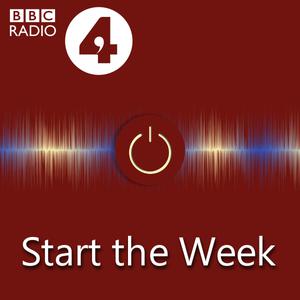 Start the Week
Start the Week
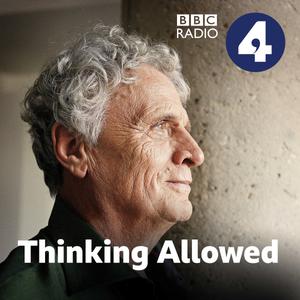 Thinking Allowed
Thinking Allowed
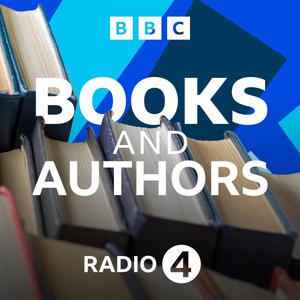 Books and Authors
Books and Authors
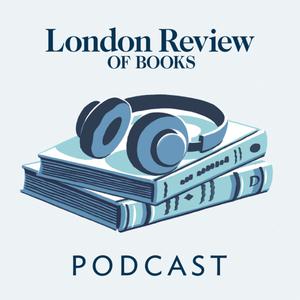 The LRB Podcast
The LRB Podcast
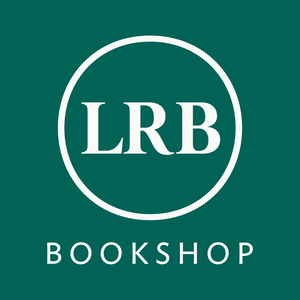 London Review Bookshop Podcast
London Review Bookshop Podcast
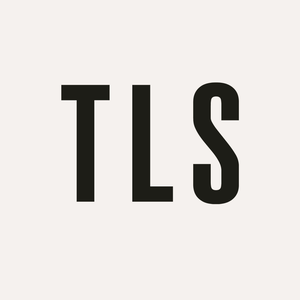 The TLS Podcast
The TLS Podcast